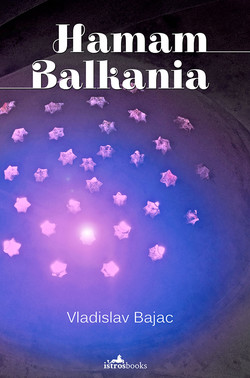Читать книгу Hamam Balkania - Vladislav Bajac - Страница 22
На сайте Литреса книга снята с продажи.
ОглавлениеIn spite of the quite visible outward sameness in their studies and behaviour, Bajica could clearly see differences in the way the boys around him accepted the teachings of Islam. The first to stand out was a group who had arrived in Edirne a few years earlier. Among them was Mustafa, Deli Husrev-pasha’s brother. These boys were very careful that their revolt against Islam did not surface in front of their teachers and guardians, but they did not hide it whatsoever in front of the other students. They said that they could never reject the Christian faith, and they especially liked telling this to Bajica. They felt safe because he was the only one among them to have studied to be an Orthodox monk before being brought here, and indeed he had been brought to Edirne literally from the monastery.
Yet, they were surprised by his reserve, and by his counsel as well. They were probably expecting not only that he would openly and directly support them, but that he would indeed most likely decide to be their leader. To be honest, they were not sure their leader in what; although their inclinations were probably towards rebellion. Surely not in an open one, but rather in a conceptual, clandestine one. Bajica, for his part, confronted them with the fact that they had already changed their faith through their conversion in every possible way: in their pledge – in their words and body, their clothing, food, language and prayers. He supported them in their right to go on believing whatever they wanted, even in the Father, Son and Holy Spirit, but deep within themselves. That right and that secret, he kept telling them, could never be taken away from them by anyone. All other protest against faith in Allah, even if it were only slightly visible in public, would end in the violent loss of their life. Between the two extremes offered – life with Allah and death without him – there were no other possibilities. Only one of those two could be chosen. Of course, they could go on like this, half in secret and half publicly, rejecting faith in the Prophet Mohammed, but in doing so they were, he warned them, each day increasing the danger of betrayal that would come most likely from among their own ranks.
After several discussions, they settled down. They did not accept the foreign faith with their hearts and souls, but they understood that they had no other choice outside that intimate truth, unless they chose to go to their deaths, either by their own hand or someone else’s.
It was good that they did not take his words as a defeat, especially when he spoke to them about the feasible duality of belief. He told them that no one could erase his memories either. Even if he wished to erase them himself, how could that be possible? One cannot extinguish a part of one’s life by making a decision; only life up till now. Nor can life begin on a day of one’s choice. It could be seen that they were surprised by these words, but they realised that they were spoken by the wisest among them.
Only then did Bajica figure out that, of all those in this conservative group, Mustafa, Husrev-pasha’s younger brother, was set apart for higher education, and that he was the only one among them who was destined to service in the ruler’s proximity. Later, he even reminded Mustafa of this, telling him in confidence that they would soon all go their separate ways, and that he alone would remain without anyone else from the rebel group; while some of them might stay together, others might not. He counselled him to be patient and wait for the events that were certain to come and bring change.
He also reminded him that they were related.
